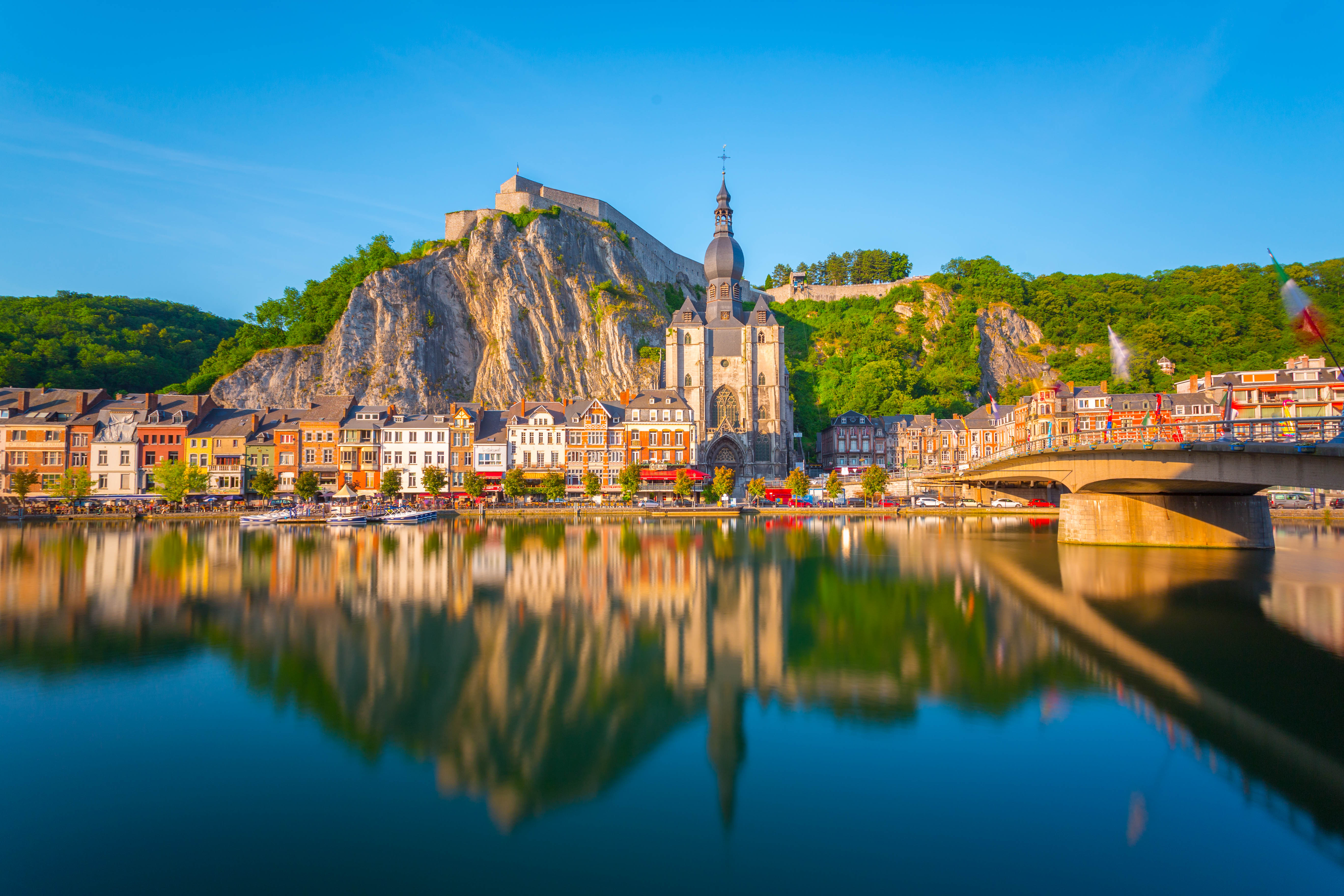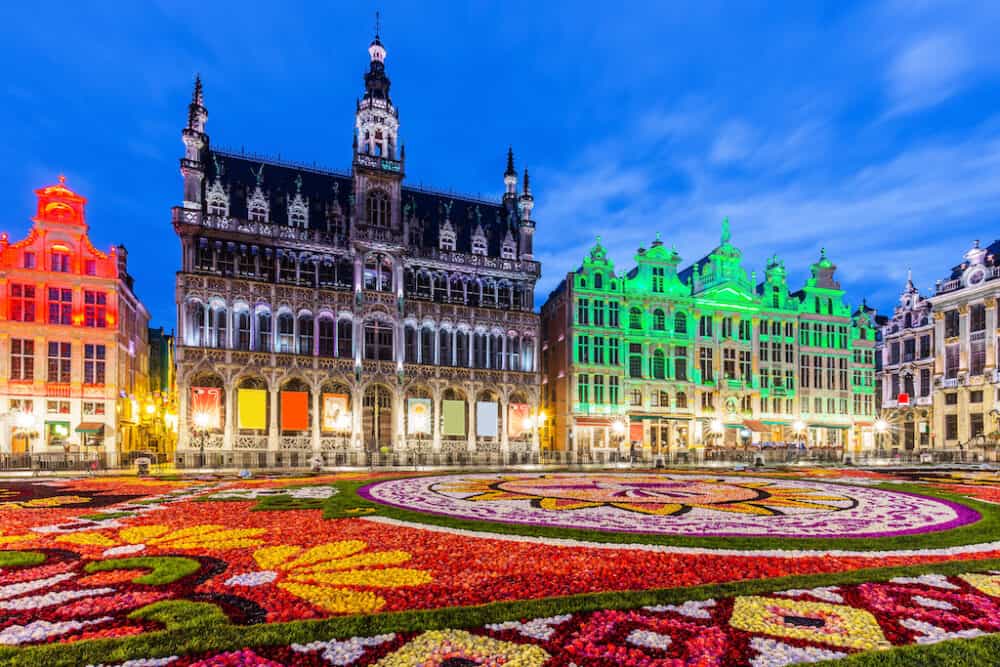Belgium, a small yet culturally rich country in Western Europe, offers an enchanting mix of history, culture, and gastronomy that captivates visitors from all corners of the world. Situated between France, Germany, and the Netherlands, Belgium is a melting pot of diverse influences. Its stunning architecture and world-famous chocolate are just a glimpse of what this remarkable nation has to offer. Whether you're a history enthusiast, a food lover, or an art admirer, this article will provide you with an in-depth exploration of everything Belgium has to present.
Belgium plays a pivotal role in the European Union, being home to its administrative headquarters in Brussels. The country's strategic positioning and its rich cultural heritage make it an ideal destination for travelers who seek both adventure and tranquility. In this article, we will explore various facets of Belgium, including its geography, culture, economy, and much more.
With its picturesque landscapes, vibrant cities, and warm-hearted locals, Belgium is a hidden treasure waiting to be discovered. From the charming cobblestone streets of Bruges to the lively squares of Antwerp, this country promises an unforgettable experience for every visitor. Join us as we embark on a journey through the wonders of Belgium and uncover the reasons behind its fascination.
Read also:Transform Your Living Space With A Lelandwood Sectional
Table of Contents
- Exploring the Geography of Belgium
- A Glimpse into Belgium's Rich History
- The Cultural Tapestry of Belgium
- Understanding Belgium's Economy and Industries
- Top Tourism Destinations in Belgium
- Delicious Belgian Gastronomy
- Languages Spoken Across Belgium
- Belgium's Political Framework
- Belgium's Education System
- The Future Outlook for Belgium
Exploring the Geography of Belgium
Belgium is a compact yet geographically diverse country located in Western Europe, covering an area of approximately 30,528 square kilometers. It shares borders with France to the south, Germany and Luxembourg to the east, and the Netherlands to the north. The North Sea lies to the west, offering Belgium access to significant maritime trade routes.
The country is segmented into three primary regions: Flanders in the north, Wallonia in the south, and the Brussels-Capital Region in the center. Each region exhibits distinct features contributing to Belgium's rich diversity. For instance, Flanders is renowned for its flat terrains and historic cities, whereas Wallonia is celebrated for its rolling hills and dense forests.
Climate in Belgium
Belgium enjoys a temperate maritime climate, characterized by mild winters and cool summers. Rainfall is evenly distributed throughout the year, which keeps the country lush and green. This climate supports a thriving agricultural sector, especially in the cultivation of barley, sugar beets, and potatoes.
According to the World Meteorological Organization, Belgium's average temperature ranges from 1°C in January to 23°C in July. This moderate climate makes it an attractive destination for travelers seeking comfortable weather year-round.
A Glimpse into Belgium's Rich History
The history of Belgium dates back to ancient times, with evidence of human settlement in the region as early as the prehistoric era. Over the centuries, the land now known as Belgium has been shaped by various civilizations, including the Celts, Romans, and Franks. During the Middle Ages, Belgium emerged as a hub for trade and commerce, with cities like Bruges and Ghent flourishing as pivotal economic centers.
The modern nation of Belgium was established in 1830 following a revolution against Dutch rule. Since then, the country has undergone significant political and social transformations, including the adoption of a federal system in 1993. Today, Belgium is a constitutional monarchy with a parliamentary democracy, reflecting its rich historical legacy.
Read also:Discovering Gibby The Rising Star In Pop And Rampb Music
Key Historical Events
- 1830: Belgium declares independence from the Netherlands.
- 1914-1918: Belgium becomes a battleground during World War I.
- 1940-1945: Occupied by Nazi Germany during World War II.
- 1993: Belgium adopts a federal structure, dividing the country into Flanders, Wallonia, and Brussels.
The Cultural Tapestry of Belgium
Belgium is a country brimming with cultural diversity, influenced by its neighboring countries and its own unique traditions. The culture of Belgium is a reflection of its history, blending elements of Flemish, Walloon, and Germanic heritage. From its globally acclaimed art to its vibrant festivals, Belgium provides a cultural experience that is truly one of a kind.
A standout aspect of Belgian culture is its art scene. Renowned artists such as René Magritte and James Ensor have placed Belgium on the map as a center for artistic innovation. Moreover, the country houses numerous museums and galleries, showcasing everything from medieval artifacts to contemporary installations.
Festivals and Traditions
Belgium is renowned for its colorful festivals, celebrating everything from religious customs to culinary delights. Some of the most celebrated festivals include:
- Brussels Grand Place Illuminations
- Binche Carnival
- Ghent Festival
- Brussels Beer Festival
Understanding Belgium's Economy and Industries
Belgium boasts a robust and diversified economy, ranking among the top nations in terms of GDP per capita. Its strategic location at the heart of Europe positions it as an ideal hub for international trade and commerce. Belgium is home to numerous multinational corporations, including Anheuser-Busch InBev and Umicore, which significantly contribute to its economic growth.
Alongside its industrial sector, Belgium's economy is bolstered by a thriving service industry, especially in finance, logistics, and tourism. The country's dedication to innovation and sustainability guarantees its continued economic prosperity in the global market.
Key Industries
- Manufacturing
- Chemical production
- Automotive industry
- Tourism
Top Tourism Destinations in Belgium
Belgium is a sought-after tourist destination, welcoming millions of visitors each year. The country's charming cities, breathtaking landscapes, and rich cultural heritage make it an ideal location for both short getaways and extended vacations. From the iconic Grand Place in Brussels to the picturesque canals of Bruges, Belgium offers a wealth of attractions for travelers.
Data from the World Tourism Organization reveals that Belgium received over 11 million international tourists in 2019. This statistic underscores the country's growing popularity as a travel destination, driven by its unique combination of history, culture, and modernity.
Must-Visit Cities
- Brussels: The capital city and home to the European Union.
- Bruges: A UNESCO World Heritage Site famous for its medieval architecture.
- Ghent: A lively city with a rich history and stunning landmarks.
- Antwerp: Renowned for its diamond industry and artistic heritage.
Delicious Belgian Gastronomy
No discussion about Belgium would be complete without mentioning its world-famous cuisine. From its delectable chocolates to its hearty moules-frites, Belgian food is celebrated worldwide. The country's culinary traditions reflect its diverse cultural influences, resulting in a rich and varied gastronomic experience.
Belgium is also celebrated for its beer production, offering over 1,500 varieties. Each region boasts its own unique brews, ranging from light lagers to strong ales. This diversity in beer production has earned Belgium a reputation as one of the world's leading beer-producing nations.
Popular Belgian Dishes
- Belgian waffles
- Moules-frites
- Waterzooi
- Carbonade Flamande
Languages Spoken Across Belgium
Belgium is a multilingual country, with three official languages: Dutch, French, and German. Dutch is predominantly spoken in Flanders, while French is the primary language in Wallonia and Brussels. German is spoken in the eastern part of the country, particularly in the province of Liege.
This linguistic diversity reflects Belgium's rich cultural heritage and emphasizes its commitment to promoting multilingualism. The country's education system encourages students to learn multiple languages, ensuring they are well-prepared to engage with the global community.
Belgium's Political Framework
Belgium operates as a constitutional monarchy with a parliamentary democracy. The King serves as the head of state, while the Prime Minister leads the government. The country is divided into three regions—Flanders, Wallonia, and Brussels—and three communities—Flemish, French, and German-speaking—each with its own governing bodies.
This federal structure allows for regional autonomy while maintaining national unity. Belgium's political system is designed to ensure representation for all its diverse communities, fostering harmony and cooperation among its citizens.
Belgium's Education System
Belgium places a strong emphasis on education, offering both public and private schools that provide high-quality instruction. The education system is divided into several levels, including primary, secondary, and higher education. Each region has its own educational policies, reflecting the country's commitment to regional autonomy.
Higher education in Belgium is highly regarded, with prestigious institutions such as the University of Leuven and the Free University of Brussels attracting students from across the globe. The country's focus on innovation and research ensures its continued success in the global academic community.
The Future Outlook for Belgium
As Belgium continues to progress, it faces both challenges and opportunities. The country's dedication to sustainability, innovation, and cultural preservation ensures its continued relevance in the global community. With its strategic location and diverse population, Belgium is well-positioned to flourish in the years to come.
Looking ahead, Belgium must address issues such as climate change, economic inequality, and social cohesion. By fostering collaboration and dialogue among its citizens, the country can build a brighter future for all its residents.
Key Challenges and Opportunities
- Sustainable development
- Technological innovation
- Regional cooperation
- Cultural preservation
Conclusion
In summary, Belgium is a country abundant in history, culture, and opportunity. From its breathtaking landscapes to its dynamic cities, this nation offers something for everyone. Whether you're passionate about art, food, or politics, Belgium provides a captivating insight into the heart of Europe.
We encourage you to delve deeper into the wonders of Belgium by leaving a comment, sharing this article, or reading more about this incredible country. Together, let's celebrate the diversity and beauty that make Belgium such a unique and special place. Thank you for joining us on this exploration through the rich tapestry of Belgium!


